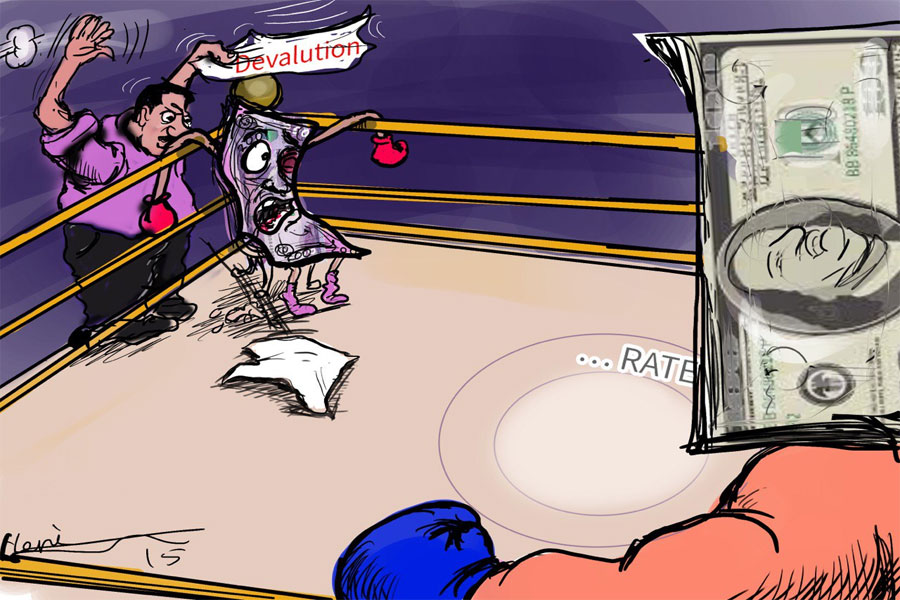
Radar | Aug 13,2022
Jul 8 , 2023
By BEMNET TAFESSE ( FORTUNE STAFF WRITER. )
A circular that prevents the dismissal of appeals presented before higher courts without adequate justification has been signed by Chief Justice Tewodros Mihret a month ago.
The working practice used to give judges the right to concur with rulings of the lower courts by merely filling out a form.
It came about with hopes of avoiding redundancy and was handy when the applicant bases the appeal entirely on the record of the original hearing and does not request permission to call in new evidence. However, the absence of regulatory mechanisms led the scheme to be abused in discarding applications even with updated evidence.
Officials disclosed the new requirement came about following the continued grievances by appellants on the discipline and integrity of the judicial system.
Aron Degol, research & legal affairs director at the Supreme Court, said adequate reason must be given with each decision in a manner that ensures accountability. He expressed that while dismissing cases by filing out forms may reduce the courts' caseload, it significantly eroded belief in the judicial system.
"The growing number of applications brought before the disciplinary committee shows the level of dissatisfaction from the public," said Aron.
The circular reasons that dismissing motioned files by merely aligning with lower courts' rationale is tantamount to depriving the right to appeal, which is guaranteed under the constitution.
Legal practitioners applaud the development as a sensible step taken by the supreme court to restore faith in the judicial system and bring accountability.
Wendimu Alemu, a legal practitioner with over five years of experience, observed that the prior scheme was often prone to abuses giving free rein to dismiss applications. He claims to have encountered such instances in his own cases, leaving him confused as to the reason behind the rulings.
"It's difficult to know whether the applications have been looked at or not," he told Fortune.
He claims that such practices contribute to jeopardizing the accountability of judges and the very essence of rationality that need to be upheld in courts.
Nearly 400 judges are working in 25 federal courts comprised of the Federal First Instance, the Federal High, the Supreme courts, and the newly established Trade & Investment courts. In the first eight months of this fiscal year, the Federal Supreme Court has dismissed 8,970 cases in its three inquisitorial benches by merely filling out forms.
Fikadu Solomon who was in corporate litigation at the Federal High Court in 2021, claims to have been wronged by the practice. He paid two million Birr to the respondent for the construction of canals for his farm. However, Fikadu claims the respondent failed to perform in line with the contractual obligation with the case ending up before the First Instance Court.
After one and a half years, a ruling was made in favour of the respondent citing that the construction work has been carried out according to the contractual agreement. Aggrieved by this decision Fikadu file his motioned petition to the Federal High Court incorporating evidence that can substantiate his claim. However, the appeal was dismissed without considering the newly introduced evidence.
"No one even gave me a reason," he said.
A judge at the Federal High Court presides over an average of 203 cases a year, according to a World Bank Study. The number is higher when it is juxtaposed with other African countries, such as South Africa with over 145 cases annually.
Hefty case loads and tight schedules are cited as the prominent reason for case backlogs amongst experts.
Fasil Wondwossen, a law school lecturer at Haramaya University, attributes the rise in complaints to be caused by a serious shortage of manpower which prevents judges from thoroughly going through each case.
Despite the instrumental nature of the circular, Fasil questions its validity if courts still grapple with issues related to human power. He reasons that even if the new circular is in operation, the quality is at risk without the addition of personnel to the system.
"Losing balance between quick and quality is the source of the problem," said Fasil.
PUBLISHED ON
Jul 08,2023 [ VOL
24 , NO
1210]

Radar | Aug 13,2022

Fortune News | Sep 14,2024

My Opinion | Jun 27,2020

Viewpoints | Dec 19,2020

Agenda | Apr 28,2024

Fortune News | Jan 23,2019

View From Arada | Jun 01,2019

Editorial | Nov 14,2020

Radar | Nov 20,2023

Editorial | Dec 17,2022

Dec 22 , 2024 . By TIZITA SHEWAFERAW
Charged with transforming colossal state-owned enterprises into modern and competitiv...

Aug 18 , 2024 . By AKSAH ITALO
Although predictable Yonas Zerihun's job in the ride-hailing service is not immune to...

Jul 28 , 2024 . By TIZITA SHEWAFERAW
Unhabitual, perhaps too many, Samuel Gebreyohannes, 38, used to occasionally enjoy a couple of beers at breakfast. However, he recently swit...

Jul 13 , 2024 . By AKSAH ITALO
Investors who rely on tractors, trucks, and field vehicles for commuting, transporting commodities, and f...

Jun 28 , 2025
Meseret Damtie, the assertive auditor general, has never been shy about naming names...

Jun 21 , 2025
A well-worn adage says, “Budget is not destiny, but it is direction.” Examining t...

Jun 14 , 2025
Yet again, the Horn of Africa is bracing for trouble. A region already frayed by wars...

Jun 7 , 2025
Few promises shine brighter in Addis Abeba than the pledge of a roof for every family...